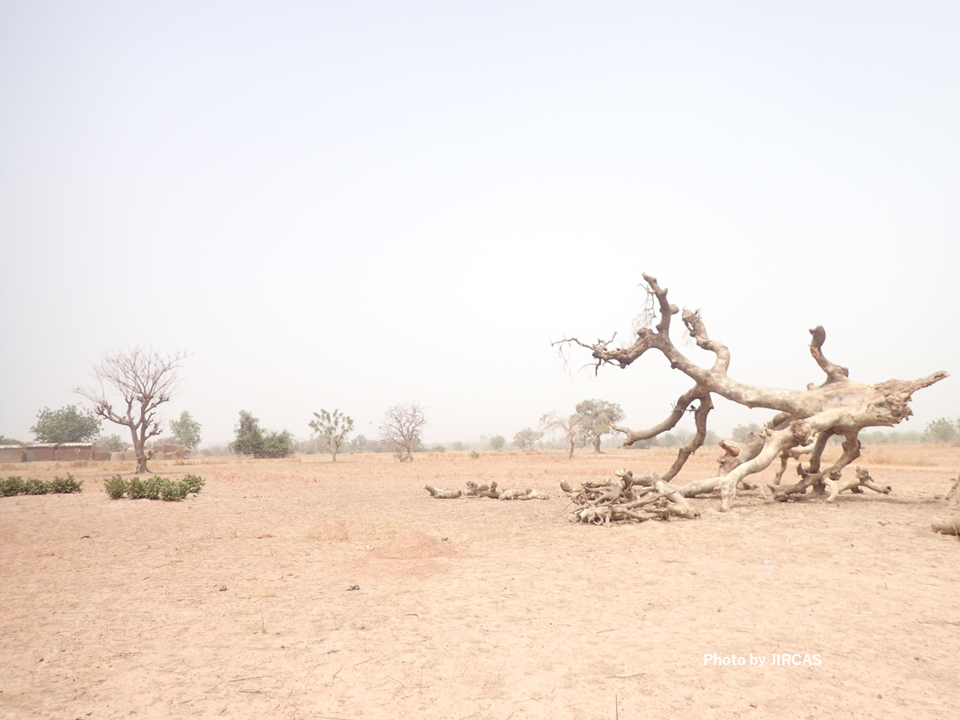Pick Up
1005. Observed Trends in Recent Extreme Weather

1005. Observed Trends in Recent Extreme Weather
The year 2023 was the hottest year since 1850, when observations began, and perhaps the hottest in the past 100,000 years. In recent years, record-high temperatures have been accompanied by extreme weather events around the world, and this year 2024 has already seen extreme events such as heat waves in South America, drought in Southern Africa, and flooding in Dubai
Referring to extreme weather events in 2023, a newly published paper noted that in recent years, extreme heat waves have tended to be observed relatively early in the year and simultaneously in different regions around the world (e.g., a heat wave observed at the same time in the Northern Hemisphere in July 2023). Extreme cyclones exacerbated extreme rainfall events (flooding in northern China in July and in Libya in September), and in some areas, floods were preceded by droughts (California, Horn of Africa). Extreme weather events can also cause disasters related to ecosystems, such as forest fires (Hawaii in August and Canada from spring to fall of 2023) and sandstorms (Mongolia in April 2023). There is a growing need to study emerging trends in extreme weather events for adaptation strategies and countermeasures.
We are only a third of the way through 2024, and extreme events have already been reported, including heat waves in South America, droughts in southern Africa, and floods in Dubai. According to an April 18 report by World Weather Attribution (WWA), which analyzes the causal relationship between extreme events and climate change, extreme heat waves were observed in the Sahara region and West Africa from late March to early April 2024. In Burkina Faso, a maximum temperature of 45°C and a minimum temperature of 32°C were observed, and in Mali, 48.5°C was recorded on April 3. These unusually high temperatures were reported in Senegal, Guinea, Mali, Burkina Faso, Niger, Nigeria, and Chad. Many countries experienced power outages, and although there are no accurate statistics yet, there are concerns about the health hazards of heat waves. WWA has pointed out that the probability of such heat waves occurring may increase due to global warming. With regard to the extreme high temperatures, the current El Niño has a relatively small impact compared to anthropogenic climate change.
The following information is from the United Nations Volunteers (UNV) Programme, which we reported on earlier. The deadline is approaching so please consider this opportunity.
「Japan-UNV Partnership to Address Water and Food Crises Caused by Climate Change and Drought in Sub-Saharan African Countries 」
The United Nations Volunteers (UNV), through the "Japan-UNV Partnership to Address Water and Food Crises Caused by Climate Change and Drought in Sub-Saharan African Countries," is recruiting Japanese experts, mainly in the fields of water and food security, social and economic recovery, strategic policy formulation, and inter-agency coordination, to serve as UN volunteers for 10 months.
◆Application deadline: Monday, April 29, 2024 (tentative)
◆Details: https://unv.or.jp/news/2798/ (link in Japanese)
◆Webinars: (links in Japanese)
4/24(Wed) 18:00-18:45 UNV Open Recruitment Seminar for Spring 2024 (Register here: https://unv.or.jp/news/2855/)
4/26(Fri) 18:00-19:00 Introduction to UN Volunteers (Register here: https://unv.or.jp/news/2851/)
UNV experience provides a valuable opportunity to deepen your knowledge and skills in a specific field of expertise and the UN system, and is considered as work experience when applying for the Junior Professional Officer (JPO) Programme. We look forward to hearing from you if you are interested in a career with the UN or other international organizations.
◆For inquiries, please contact:
United Nations Volunteers (UNV) Tokyo Liaison Office
unv.tokyo@unv.org
Reference
Wenxia Zhang et al, 2023: Weather and Climate Extremes Hitting the Globe with Emerging Features, Advances in Atmospheric Sciences (2024). https://link.springer.com/article/10.1007/s00376-024-4080-3
Contributor: IIYAMA Miyuki (Information Program)
